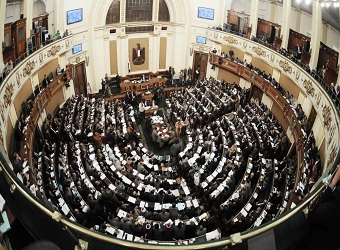The Egyptian parliament’s committee for media, culture and antiquities held a closed-door meeting Sunday to a consider law aimed at regulating online media activities.
The 25-article law was drafted by MP Atef Nasser and approved by 60 deputies.
Nasser, parliamentary spokesman of the “Future of a Nation” party, said his draft law covers all online media activities affiliated with publishing houses, news agencies, press organisations, advertising and commercial businesses, and satellite audio-visual channels.
The draft law stipulates that online activities for each of the above should be headed and run by an executive manager.
“Besides, the law outlines what qualities this manager should have in order to be licensed as a online manager,” Nasser added.
The law imposes penalties on unlicensed online activities and content violations such as fake news, statements and information. And it defines the authorities that will be in charge of licensing online media activities.
“It states that once an online media activity is authorised, it should first obtain a 10-year license, which can be renewed for another 10 years under certain conditions,” Nasser said.
Nasser, an accountant, told parliamentary reporters that his draft law “aims to impose a kind of discipline on online media activities.”
“This new kind of media activities has greatly proliferated in recent years, but many of them were involved in spreading fake or unfounded news without facing any kind of regulation,” Nasser said.
Osama Heikal, head of the committee and a former information minister, said the above law was discussed in coordination with parliament’s committee of legislative and constitutional affairs, and the telecommunication and information technology committee.
Heikal said that Nasser’s draft law includes some significant articles.
“The committee can approve it as a whole or add these articles to the new government-drafted law on media and press regulation, which includes a complete chapter on online activities,” Heikal said.
MP Tamer Abdel-Qader, a member of the media committee, told the reporters the new media and press regulation law makes the Higher Council for Media Regulation (HCMR) responsible for licensing modern online media activities such as “online radios.”
Abdel-Qader indicated that the new draft media and press regulation law is different from the Institutional Regulation of the Press and Media Law passed by parliament in 2016.
“The two were one law at first, but they were made separate in order to go in line with the 2014 Constitution, which stipulates that an independent law be issued to create three regulatory bodies on the media and the press,” Abdel-Qader said.
“The new media and press regulation law focuses on tackling internal conditions of state-owned press organisations such as retirement age and promotion conditions, the licensing of foreign news agencies and satellite television channels.”
Source: Ahram Online
